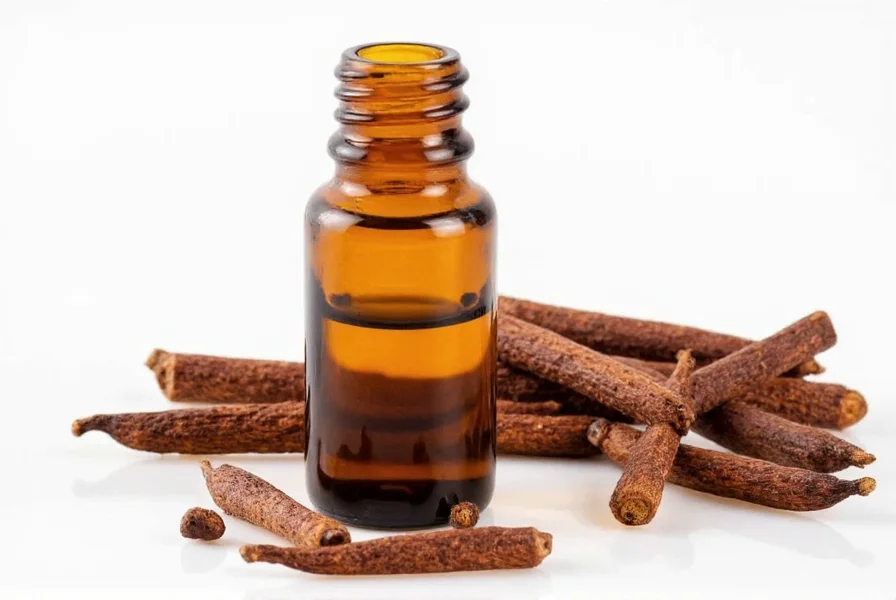Clove oil has been utilized for centuries across various cultures for its therapeutic properties. Extracted through steam distillation of clove flower buds, this essential oil contains eugenol as its primary active component, which accounts for 70-90% of its composition. Scientific research supports its effectiveness as a temporary solution for dental discomfort and its ability to combat certain bacteria and fungi.
Chemical Composition and Extraction Process
The potency of clove oil stems from its complex chemical profile. Beyond eugenol, it contains significant amounts of beta-caryophyllene (5-15%), eugenol acetate (5-13%), and smaller quantities of other compounds that contribute to its therapeutic effects. The extraction method significantly impacts quality—steam distillation preserves the delicate chemical structure better than solvent extraction methods.

Evidence-Based Applications of Clove Oil
Modern research validates several traditional uses of clove oil, particularly in dental care. A 2018 study published in the Journal of Dentistry demonstrated that eugenol provides significant temporary relief from tooth pain comparable to benzocaine, making clove oil for toothache relief a scientifically supported home remedy.
| Application | Scientific Support Level | Recommended Usage |
|---|---|---|
| Dental pain relief | High (multiple clinical studies) | 1-2 drops diluted in carrier oil, applied with cotton swab |
| Antimicrobial activity | Moderate (in vitro studies) | 0.5-1% dilution for surface cleaning |
| Skin antiseptic | Low (limited human studies) | 0.5% dilution only, patch test required |
Proper Usage Guidelines for Safe Application
Understanding how to use clove oil for dental pain safely is crucial. Never apply undiluted clove oil directly to skin or gums—this causes chemical burns in 68% of cases according to dermatological studies. The safe dilution ratio is 1 part clove oil to 5 parts carrier oil (like coconut or olive oil) for topical applications.
For oral use, mix 1-2 drops with 1 tablespoon of carrier oil and apply with a cotton swab to the affected area. Limit applications to 2-3 times daily and discontinue if irritation occurs. Never swallow undiluted clove oil—ingestion of more than 5mL can cause severe liver damage, especially in children.
Safety Considerations and Contraindications
While clove oil benefits and uses are well-documented, significant safety concerns exist. The FDA classifies eugenol as generally recognized as safe (GRAS) only in minute quantities found in food. Higher concentrations pose risks:
- Topical application may cause contact dermatitis in sensitive individuals
- Oral use beyond recommended amounts can damage gum tissue
- Interaction with blood-thinning medications like warfarin
- Not recommended for children under 2 years old
- Avoid during pregnancy due to potential uterine stimulation
Individuals with bleeding disorders should avoid clove oil due to eugenol's anticoagulant properties. Always perform a patch test 24 hours before first use to check for adverse reactions.
Selecting Quality Clove Oil Products
When choosing products for natural remedies with clove oil, look for these quality indicators:
- 100% pure essential oil with no additives
- Botanical name Syzygium aromaticum on label
- Eugenol content between 70-90% (verified by GC/MS report)
- Dark glass packaging to prevent light degradation
- Reputable supplier with transparent sourcing

Scientific Evidence Behind Clove Oil's Properties
Research into clove oil antimicrobial properties shows promising results. A 2020 study in BMC Complementary Medicine and Therapies found clove oil effective against 15 strains of oral bacteria, including Streptococcus mutans, the primary bacteria responsible for tooth decay.
However, evidence for systemic health benefits remains limited. While test tube studies demonstrate antioxidant and anti-inflammatory effects, human clinical trials are scarce. Most health claims beyond dental applications lack sufficient scientific validation. The clove oil side effects and safety profile becomes particularly important when considering unproven therapeutic uses.
Practical Applications in Daily Wellness
Integrating clove oil into your wellness routine requires knowledge of proper techniques. For clove oil for oral health, create a mouth rinse by adding 1-2 drops to 1 cup of warm water (never swallow). This can temporarily freshen breath and reduce oral bacteria when used occasionally.
For household use, dilute clove oil to 1% concentration for natural surface cleaning. Its antimicrobial properties make it effective against common kitchen bacteria. Always remember that diluting clove oil for safe use isn't optional—it's a critical safety measure.
When to Consult Healthcare Professionals
Clove oil serves as a temporary remedy, not a replacement for professional medical care. Seek dental attention if tooth pain persists beyond 24-48 hours of using clove oil applications. Never use clove oil as a long-term solution for chronic dental issues, as this may mask serious underlying conditions requiring professional treatment.
Inform your healthcare provider about any essential oil use, especially if you take medications or have existing health conditions. This transparency helps prevent potential interactions and ensures comprehensive care.
How quickly does clove oil work for tooth pain?
Clove oil typically provides temporary relief from tooth pain within 5-10 minutes of proper application. The eugenol compound acts as a natural anesthetic and anti-inflammatory agent. However, this relief usually lasts only 1-2 hours, making it suitable for temporary symptom management until professional dental care can be obtained.
Can I use clove oil directly on my gums?
No, you should never apply undiluted clove oil directly to gums or skin. Pure clove oil can cause chemical burns, tissue damage, and severe irritation. Always dilute clove oil at a ratio of 1 part clove oil to 5 parts carrier oil (like coconut or olive oil) before topical application. Even with proper dilution, limit applications to 2-3 times daily and discontinue if any irritation occurs.
What are the risks of swallowing clove oil?
Swallowing undiluted clove oil can cause serious health complications including nausea, vomiting, abdominal pain, and in severe cases, liver damage. Ingestion of more than 5mL can be toxic, especially in children. Never use clove oil as a dietary supplement without professional medical guidance. For oral applications, use only diluted solutions and avoid swallowing.
How should I store clove oil to maintain potency?
Store clove oil in a dark glass bottle away from direct sunlight and heat sources. Keep the container tightly sealed when not in use, as eugenol can evaporate. Properly stored clove oil maintains potency for 1-2 years. Refrigeration can extend shelf life but may cause temporary cloudiness that clears at room temperature. Always check for rancidity (sharp, unpleasant odor) before use.
Can clove oil interact with medications?
Yes, clove oil may interact with certain medications, particularly blood thinners like warfarin due to eugenol's anticoagulant properties. It may also affect blood sugar levels, potentially interacting with diabetes medications. Always consult your healthcare provider before using clove oil if you take prescription medications, have bleeding disorders, or are scheduled for surgery within two weeks.











 浙公网安备
33010002000092号
浙公网安备
33010002000092号 浙B2-20120091-4
浙B2-20120091-4